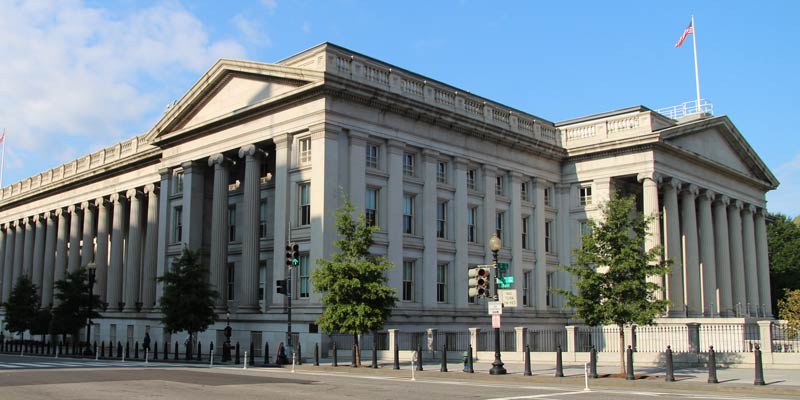WASHINGTON, DC — On October 6, following the release of the first final rule to implement the landmark Corporate Transparency Act, the FACT Coalition hosted a private civil society roundtable conversation with senior Treasury Department officials to discuss progress in improving and strengthening U.S. anti-money laundering and anti-corruption safeguards. According to the Treasury Department, the proceeds of illicit activity roughly equal two percent of US GDP, and these illicit flows harm our economy, democracy, and national security.
The FACT Coalition was grateful for the opportunity to engage with the Under Secretary for Terrorism and Financial Intelligence Brian Nelson; Assistant Secretary for Terrorist Financing and Financial Crimes Elizabeth Rosenberg; and Acting Director of the Financial Crimes Enforcement Network (FinCEN) Him Das. FACT Coalition members noted with appreciation the work of Treasury leadership, including Secretary Yellen, and staff to advance key anti-money laundering and anti-corruption reforms and recognized that the process to implement the landmark Corporate Transparency Act is a significant undertaking involving extensive consultation with stakeholders.
Treasury officials detailed efforts to implement the Corporate Transparency Act as well as steps the Biden Administration is planning to take to tackle America’s dirty money problem. As Secretary Yellen said last December at the Summit for Democracy, “there’s a good argument that, right now, the best place to hide and launder ill-gotten gains is actually the United States. And that’s because of the way we allow people to establish shell companies.”
FACT Coalition members asked questions of clarification regarding the first final rule and offered to engage with the Treasury Department as it develops further guidance to implement the new regulations. FACT Coalition members emphasized the need to ensure only verified information is submitted to the beneficial ownership registry and to take advantage of the free beneficial ownership registry software and technical specifications that have been developed by the civil society group Open Ownership and that are now being used by at least 40 countries.
Treasury officials and FACT members also discussed issues related to future rulemakings, including the need for timely, uncomplicated, and comprehensive access to information in the forthcoming beneficial ownership registry by competent authorities in other jurisdictions.
In advance of the U.S. hosting the International Anti-Corruption Conference in December, this conversation was also an opportunity to discuss additional steps that are needed to bring greater transparency to the U.S. financial system and to bolster U.S. credibility on the international stage, including by addressing recommendations and weaknesses identified by the Financial Action Task Force. Such steps should include measures to systematically tackle money laundering through real estate and private investment as well as to curb the harmful role of professional enablers who help criminals and corrupt elites hide their money throughout the U.S. and international financial systems. Participants agreed that future events, such as the U.S.-Africa Leaders Summit in December, the second Summit for Democracy, and the U.S. hosting of the United Nations Convention Against Corruption Conference of States Parties in 2023, all present important moments to advance U.S. and global efforts to tackle harmful corruption and illicit financial flows.

